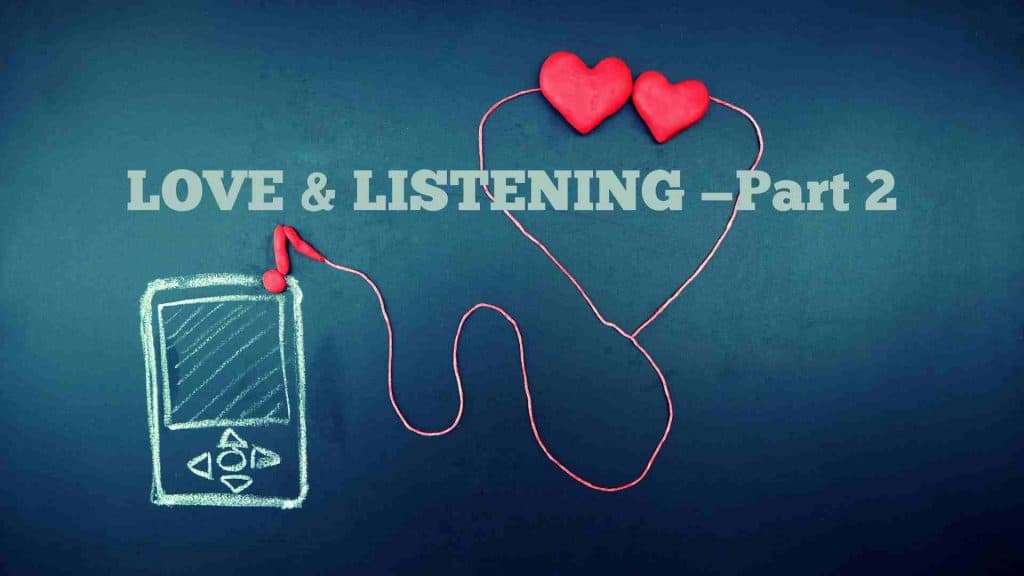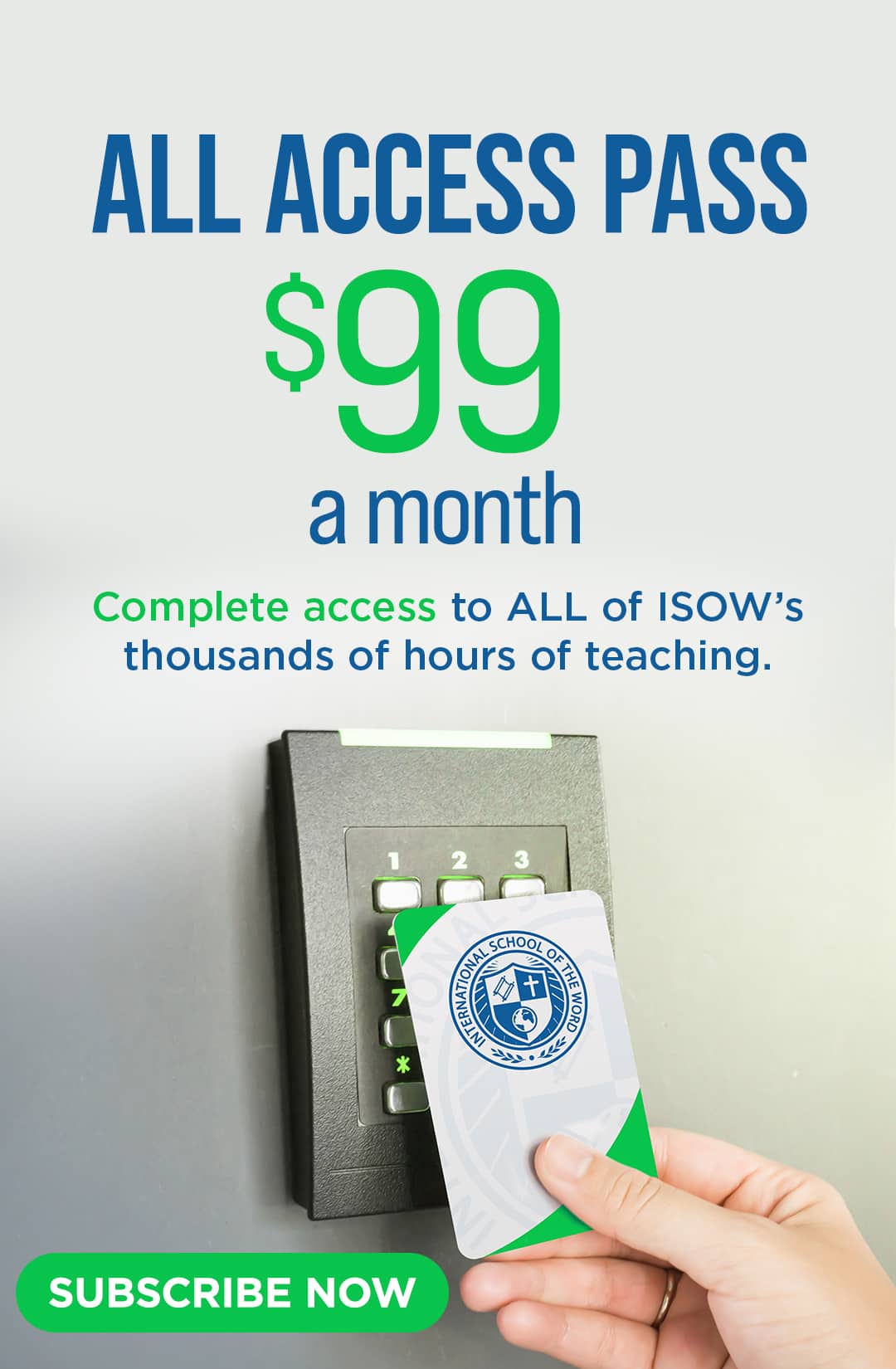
In the previous post we covered the first four of eight principles we’ve learned when it comes to listening well.
- Eliminate distractions.
- Activate your focus.
- Subordinate your opinion.
- Regulate your emotions and assumptions.
This post will cover the final four.
5. Demonstrate empathy.
Empathy is more than sympathy or feeling sorry for someone. Empathy is the ability to step into someone else’s shoes. It’s the ability to understand another person’s thoughts and feelings in a situation from their point of view, rather than your own.
One researcher and professor explained the difference between sympathy and empathy like this:
Sympathy is seeing someone in a deep hole while you remain firmly planted on higher ground and talk to them from above. It’s feeling for someone.
But empathy, on the other hand, is seeing your friend in a hole, but instead of staying on higher ground talking to them from above, you climb down into the hole to sit or stand beside them. You actually make yourself vulnerable to the pain their going through because you actually want to connect with them. Empathy is feeling with someone. [1]
Perhaps this is what Paul was getting at when he wrote:
“Rejoice with those who rejoice, weep with those who weep.” —Romans 12:15 ESV
Paul didn’t write, “Fix them. Give them lots of great advice. Or, give them a theological explanation…” He simply wrote, “Rejoice… Weep…” In other words, “Allow your emotions to appropriately match their emotions…”
The great C.S. Lewis described it like this:
“Friendship … is born at the moment when one man says to another “What! You too? I thought that no one but myself…”
—C.S. Lewis, The Four Loves
That’s a terrific description of what vulnerability and empathy look like. The moment someone gets real and vulnerable with us, it gives us permission and even an invitation to get real and vulnerable with them.
6. Participate with thoughtful questions and gestures.
Asking thoughtful questions is an artform. Develop the art of asking good, thoughtful, appropriate questions.
Acknowledge the person’s experience with appropriate gestures like nodding your head, smiling, holding their hand, or sincerely saying something like, “I’m so sorry…”
Invite the person to continue sharing by saying something like, “Is there more?” or, “Go on…”
7. Cultivate understanding.
Several decades ago, Stephen Covey said it like this in his classic, 7 Habits of Highly Effective People: “Seek first to understand, then to be understood.”
Business expert and prolific author, Peter Drucker described it like this: “The most important thing in communication is to hear what isn’t being said.”
The Gottman Method Couples Therapy says it like this:
“Understanding must precede advice.” —The Gottman Method
It’s so easy to give advice, even when the advice you offer isn’t really that good. Opinions are like noses. Everyone has one and they’re all different.
But the goal of communication isn’t to air your opinion or share your advice. The goal isn’t to win the argument, make your point or “be right”. The goal is always understanding.
At some point, you have to ask yourself:
Do I want to always be right or do I want to be in a vibrant, healthy relationship?
According to John Gottman, 69% of marriage problems are unsolvable. But despite what many therapists and people tell you, “…you don’t have to resolve your major marital conflicts for your marriage to thrive.” [2] The same goes for any other relationship, as well.
Every problem in a relationship doesn’t have to be solved,
but they do need to be understood.
It’s probably important for me to point out that understanding isn’t necessarily synonymous with agreement. It doesn’t mean that you agree with everything the person has said or is sharing. It simply means you’re listening with both your head and your heart, your ears and your emotions. You’re tracking with their feelings and perspective.
You can care about what a person is feeling even when you don’t necessarily agree with what they are saying.
Understanding is similar to empathy. It’s one of the greatest gifts you can give the people who matter most to you. We all need a relationship where we can:
- know and be known,
- love and be loved,
- serve and be served,
- celebrate and be celebrated by someone else, and,
- weep with someone and have someone who will weep with us.
That’s understanding.
Dale Carnegie nailed it when he wrote the following years ago:
“Any fool can criticize, condemn, and complain but it takes character and self-control to be understanding and forgiving.”
—Dale Carnegie
Understanding is always the goal of great communication. Cultivate it.
8. Communicate encouragement.
Culture in a relationship is created by design or default.
Always providing encouragement and affirmation is making a decision to build the culture of your relationship by design.
“Let everything you say be good and helpful, so that your words will be an encouragement to those who hear them.”
—Ephesians 4:29 NLT
“Be gracious in your speech. The goal is to bring out the best in others in a conversation, not put them down, not cut them out.”
—Colossians 4:6 MSG
If you want to give those you love the gift of listening well, put these 8 principles into practice today.
- Eliminate distractions.
- Activate your focus.
- Subordinate your opinion.
- Regulate your emotions and assumptions.
- Demonstrate empathy.
- Participate with thoughtful questions and gestures.
- Cultivate understanding.
- Communicate encouragement.
We started this two-part blog series with a quote by David Augsburger, we’ll wrap it up with another.
“Love is listening. Love is the opening of your life to another. Through sincere interest, simple attention, sensitive listening, compassionate understanding and honest sharing. An open ear is the only believable sign of an open heart. You learn to understand life–you learn to live–as you learn to listen.” —David Augsburger quoted by H. Norman Wright [3]
If you’re interested in digging deeper into the subject of communication and cultivating your listening skills, don’t miss the upcoming Marriage BLDR Conference presented by ISOW at Omega Center International. Coming February 2 and 3, 2024. Additional information will be released in early January 2024. Also, check out ISOW’s excellent course on Marriage and Family featuring Dr. Bryan Cutshall. To view courses in Spanish, click here.
Notes:
[1] Brene Brown, The Power of Vulnerability, https://www.ted.com/talks/brene_brown_the_power_of_vulnerability?language=en
[2] John and Julie Gottman, The Seven Principles for Making Marriage Work, p 170, Kindle Edition.
[3] David Augsburger quoted by H. Norman Wright, Quiet Times for Couples


